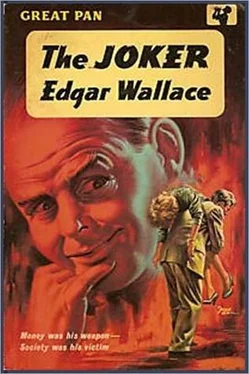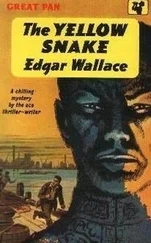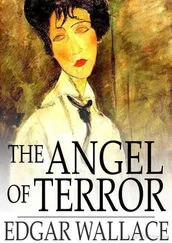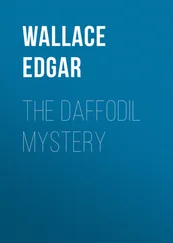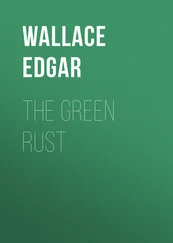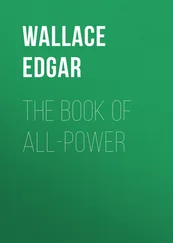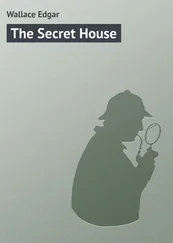Edgar Wallace - The Joker
Здесь есть возможность читать онлайн «Edgar Wallace - The Joker» весь текст электронной книги совершенно бесплатно (целиком полную версию без сокращений). В некоторых случаях можно слушать аудио, скачать через торрент в формате fb2 и присутствует краткое содержание. Год выпуска: 0101, Жанр: Старинная литература, на английском языке. Описание произведения, (предисловие) а так же отзывы посетителей доступны на портале библиотеки ЛибКат.
- Название:The Joker
- Автор:
- Жанр:
- Год:0101
- ISBN:нет данных
- Рейтинг книги:5 / 5. Голосов: 1
-
Избранное:Добавить в избранное
- Отзывы:
-
Ваша оценка:
- 100
- 1
- 2
- 3
- 4
- 5
The Joker: краткое содержание, описание и аннотация
Предлагаем к чтению аннотацию, описание, краткое содержание или предисловие (зависит от того, что написал сам автор книги «The Joker»). Если вы не нашли необходимую информацию о книге — напишите в комментариях, мы постараемся отыскать её.
The Joker — читать онлайн бесплатно полную книгу (весь текст) целиком
Ниже представлен текст книги, разбитый по страницам. Система сохранения места последней прочитанной страницы, позволяет с удобством читать онлайн бесплатно книгу «The Joker», без необходимости каждый раз заново искать на чём Вы остановились. Поставьте закладку, и сможете в любой момент перейти на страницу, на которой закончили чтение.
Интервал:
Закладка:
At that moment somebody rose on the Opposition front bench.
‘Mr Speaker, I rise to ask the right honourable gentleman a question of which I have given him private notice. The question is: Has the right honourable gentleman seen a statement published in the Daily Megaphone to the effect that relationships between His Majesty’s Government and the Government of France are strained as the result of the Bonn incident? And will he tell the House whether such a statement was issued, as is hinted in the newspaper account, with the knowledge and approval of the Foreign Office?’
Sir Joseph rose slowly to his feet, took off his horn-rims and replaced them again, nervously gripped the lapels of his coat, and leaning forward over the dispatch box, spoke:
‘The right honourable gentleman is rightly informed,’ he began, and a hush fell on the House.
Members looked at one another in amazement and consternation.
‘There does exist between His Britannic Majesty’s Government and the Government of France a tension which I can only describe as serious. So serious, in fact, that I have felt it necessary to advise the Prime Minister that a state of emergency be declared, all Christmas leave for the Armed Forces be cancelled and that all reserves shall be immediately mobilised.’
A moment of deadly silence. Then a roar of protest.
There was hurled at the Government benches a hurricane of indignant questions. Presently the Speaker secured silence; and Sir Joseph went on, in his grave, husky tone: ‘I am not prepared to answer any further questions tonight, and I must ask honourable members to defer their judgement until Monday, when I hope to make a statement on behalf of His Majesty’s Government.’
And with that, unheeding the calls, he turned and walked behind the Speaker’s chair and out of sight.
‘Good God!’ Jim was white to the lips. ‘That means war!’
Elk, who had fallen into a doze, woke with a start, in time to see his companion dashing out of the House. He followed him along the corridor to Sir Joseph’s room and knocked at the door. There was no answer. Jim turned the handle and walked in.
The room was in darkness and empty. Rushing out into the passage, he waylaid a messenger.
‘No, sir, I’ve not seen Sir Joseph. He went into the House a few minutes ago.’
By the time he got back Jim found the lobby crowded with excited members. The Prime Minister was in the West of England; the First Lord of the Admiralty and the Secretary for War had left that afternoon to address a series of public meetings in the North; and already the telephones were busy seeking the other members of the Cabinet. He found nobody who had seen Sir Joseph after he left the House, until he came upon a policeman who thought he had recognised the Foreign Minister walking out into Palace Yard. Jim followed this clue and had it confirmed. Sir Joseph had come out into the Yard and taken a taxi (though his car was waiting), a few minutes before. The detectives almost ran to Whitehall Gardens; and here they had a further shock. The Minister had not arrived at his home.
‘Are you sure?’ asked Jim incredulously, thinking the butler had orders to rebuff all callers.
‘Positive, sir. Why, is anything the matter?’ asked the man in alarm.
Jim did not wait to reply. They found a cab in Whitehall and went beyond legal speed to Park Lane. There was just a chance that the Foreign Minister had returned to Harlow’s.
When they reached Greenhart House there came to them the strains of an orchestra; dancing was in full swing, both in the library and in the large drawing-room overlooking Park Lane. They found Harlow, after a search, and he seemed the most astonished man of all.
‘Of course he hasn’t come back here. He told me he was going to the House and then home to bed. What has happened?’
‘You’ll see it in the newspapers in the morning,’ said Jim curtly and drove back to Parliament in time to find the members streaming out of the House, which had been adjourned.
Whilst he was talking with a member he knew, a car drove up and the man who alighted was instantly hailed. It was the Chancellor of the Exchequer, a broad-shouldered man, with a stoop, the most brilliant member of the Cabinet.
‘Yes, I’ve heard all about it,’ he said, in his thin, rasping voice. ‘Where is Sir Joseph?’
He beckoned Jim, who was known to him and, pushing his way through the crowd of members, went back with him along the corridor to his room.
‘Were you in the House when Sir Joseph spoke?’ he asked.
‘Yes, sir,’ said Jim.
‘Just tell me what happened.’
Briefly, almost word for word, Jim Carlton repeated the astonishing speech.
‘He must be mad,’ said the Chancellor emphatically. ‘There is not a word of truth in the whole story, unless—well, something may have happened since I saw him last.’
‘Can’t you issue a denial?’
Mr Kirknoll bit his lip. ‘In the absence of the Prime Minister, I suppose I should, but I can’t do that until I have seen Sir Joseph.’
A thought struck Jim. ‘He is not what one would describe as a neurotic man, is he?’
‘No man less so,’ said the Chancellor emphatically. ‘He is the sanest person I’ve ever met. Is his secretary in the House?’
He rang a bell and sent a messenger in search, whilst he endeavoured to telephone the absent Ministers.
The secretariat of Downing Street were evidently engaged in a similar quest, with the result that until one in the morning neither had managed to communicate with the head of the Government.
‘We can’t stop this getting into the newspapers, I suppose?’
‘It is in,’ said the Chancellor laconically. ‘I’ve just had a copy of the first editions. Why he did it, heaven only knows! He has certainly smashed the Government. What other result will follow I dare not think about.’
‘What do you think will be the first result of Sir Joseph’s speech?’
The Minister spread out his hands. ‘The markets of course will go to blazes, but that doesn’t interest us so much as the feeling it may create in France. Unhappily, the French Ambassador is in Paris on a short visit.’
Jim left him talking volubly on the Paris line and at three o’clock in the morning was reading a verbatim report of Sir Joseph Layton’s remarkable lapse. The later editions carried eight lines in heavy type:
‘We are informed by the Chancellor of the Exchequer that the Bonn incident has never been before the Cabinet for discussion, and it is not regarded as being of the slightest importance. The Chancellor informs us that he cannot account for Sir Joseph Layton’s extraordinary statement in the House of Commons.’
All night long Jim literally sat on the doorstep of Whitehall Gardens, waiting without any great hope for Sir Joseph’s return. He learnt that the Prime Minister was returning from the West by special train; and that a statement had already been issued repudiating that of the Foreign Minister.
The opening of the Stock Exchange that morning was witnessed by scenes which had no parallel since the outbreak of the War. Stocks declined to an incredible extent, and even the banks reacted to the panic. It was too early to learn what had happened in New York, the British being five hours in advance of Eastern American time, and only at four o’clock that afternoon was the position on Wall Street revealed. Heavy selling—all gilt-edged stocks depreciated; the failure of a big broking house, were the first consequences observable in the press. In France the Bourse had been closed at noon, but there was heavy street selling; and one famous South African stock, which was the barometer in the market, had dropped to its lowest level.
At five o’clock that evening a statement was issued to the press over the signatures of the Prime Ministers of Britain and France.
Читать дальшеИнтервал:
Закладка:
Похожие книги на «The Joker»
Представляем Вашему вниманию похожие книги на «The Joker» списком для выбора. Мы отобрали схожую по названию и смыслу литературу в надежде предоставить читателям больше вариантов отыскать новые, интересные, ещё непрочитанные произведения.
Обсуждение, отзывы о книге «The Joker» и просто собственные мнения читателей. Оставьте ваши комментарии, напишите, что Вы думаете о произведении, его смысле или главных героях. Укажите что конкретно понравилось, а что нет, и почему Вы так считаете.
